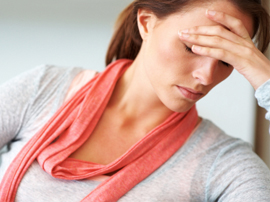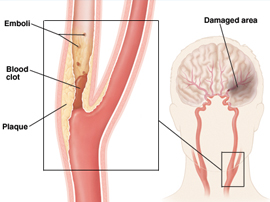Mental Stress Harder on Women
Although both men and women get heart attacks, it’s believed that women’s hearts are more vulnerable to emotional stress so researchers at Penn State College of Medicine decided to look into whether there is a biological reason for this.
The researchers recruited 17 healthy men and women, and then, since it’s known that, during stress, our heart rate increases, our blood pressure rises, and blood flow to the heart is increased, they gave the volunteers three tests to look at these heart functions.
The volunteers were given mental arithmetic tests, and, to increase their emotional stress, the researchers lightly badgered them during the tests, telling them to hurry up, or telling them they were wrong, even if they were right. At the end of the task, they underwent the same three heart function tests again.
The results found little difference between the genders during the first round of tests, but, when they performed the measurements afterwards, they found that, while the men showed an increase in all the functions, the women showed no change in their coronary blood flow.
This lesser blood flow during times of crisis could help explain why women are more at risk of coronary events during times of stress. It also serves to point out that, while stress reduction is important for everyone, women especially may want to take this lesson to heart!
Jeremiah 16:19, Matthew 11: 28-31, Psalm 32:7
Elderly Women Face Greater Stroke Risk
Because elderly women with the heartbeat irregularity known as atrial fibrillation (AF) are at a higher risk of stroke, it’s been suggested that this is because they are less likely to be taking an anticoagulant to reduce the formation of stroke-causing blood clots.
Researchers at the McGill University Health Center in Montreal decided to test this by analyzing the records of 39,390 men and 44,115, women hospitalized with newly diagnosed AF. They analyzed their risk factors, their stroke rate, and whether or not they had been put on the anticoagulant Coumadin (wafarin).
The researchers found that the women were actually more likely to be taking Coumadin, but, despite this, their stroke rate was still 14 percent higher than the men.
In the study, which was published in the Journal of the American Medical Association in May, the researchers said it is still unknown why elderly women are at higher risk of stroke than elderly men, but they need to be strongly targeted for other anti-stroke therapies.


